Talks and lectures
Many of Oxford University’s Gardens, Libraries and Museums (GLAM) have lecture theatres, particular galleries or spaces which can be used to host formal lectures and talks, offering opportunities for researchers to share their work.
Public talks may focus on items and research associated with major exhibitions and collections or programming themes, or are stand-alone. These type of events can be tailored toward a specific audience or open to the general public, allowing the researcher to engage with target groups.
Researchers may propose alternative formats to talk to public audiences, e.g. gallery talks, pop-up talks, interactive talks, performance-enhanced talks, etc.
Talks can also take place online and/or livestreaming may be available, hosted by the GLAM institution. Depending on the venue, talks may be saved as podcasts for posterity. See the Online engagement section of the GLAM PCER Toolkit for further information.
Costs can be variable, particularly if extras are required (e.g. drinks reception) – contact the relevant team to discuss. In-person events often take place once the institution has closed for the day and may therefore incur additional staffing costs.
Events may be planned up to a year in advance therefore it is advisable to contact with the relevant team at the institution at the earliest possible convenience. Please be aware that GLAM venues have full and busy programmes and it may not be possible to pick up activities that have already been fully developed or to deal with urgent requests. Ideally, activities should be co-created with GLAM from project conception and researchers should get in contact early so that we can work together to develop your ideas. Please note that while researchers may contact GLAM departments directly they are also encouraged to contact departmental/Divisional PCER facilitators for interim support/guidance.

GLAM PCER Toolkit | Getting started |
| Opportunities by category | Opportunities by institution | Case studies |
(Please note that opportunities are subject to change)
- Lectures and talks can be a means of raising public awareness about a particular topic (although can also be ‘preaching to the converted, depending on the nature of the audience)
- The usually one-way dialogue format allows researchers to deliver a large amount of information in a relatively short time. Q&A sessions at the end usually allow for very limited audience participation meaning that talks may be at more of the ‘one-way’ end of the spectrum of public and community engagement with research (PCER)
- Some members of the public may not necessarily be used to the format of a formal lecture
- Talks are long-duration and deep-level engagements so there is a lot of potential for learning (in comparison to other lighter touch activities). In addition, the audience often consists of people who already have an interest in the subject meaning that they’re more motivated to learn (in comparison to other drop-in activities). Attendees are likely to already have an interest in the topic and hence this activity is less suitable for reaching new audiences
- The level of talks and discussions needs to be carefully pitched to ensure they are accessible to the expected audience
- The delivery of out-of-hours events leads to reliance of variable hours staff to provide cover, which needs to be considered as it is a defined resource. As well as being costed in to the activity, planning and long lead periods need to be observed to avoid any clashes
List of considerations adapted from UCL Engagement's 'Putting on a public event'
Costs may be variable but are usually one-off:
- Curatorial staff time if required, although if the researcher is the speaker then the public engagement or events teams would most likely manage everything else. See section on How much will the PCER activity cost? in the GLAM PCER Toolkit for further details
- Marketing, e.g. print costs, advertising, press/PR – may be covered via regular GLAM channels
- Staffing, e.g. front of house, public engagement, technical services support – although may be given ‘in-kind’. See section on How much will the PCER activity cost? in the GLAM PCER Toolkit for further details
- Collaborator costs – expenses may apply for other speakers for a panel
- Event costs, e.g. orientation signage, design, catering (drinks/food)
- Evaluation costs, e.g. Evaluation Officer time, survey costs (tablet or paper surveys)
- Film & photography
- AV and other equipment hire beyond that provided by the GLAM institution and/or the researcher
- Venue hire – may be given in-kind
Note that this is not an exhaustive list and that these type of activities may incur costs not listed here.
Please contact the relevant team to discuss costs as soon as possible.
Additional information and links
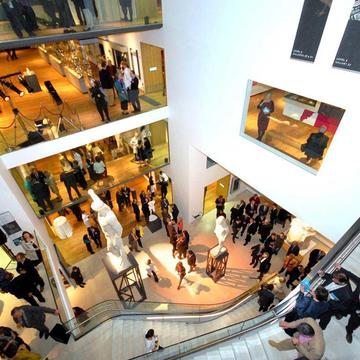
Ashmolean Museum
Potential venues for talks (capacities): Headley Lecture Theatre (100 seated theatre-style) | Galleries (capacity depends on space) | Other spaces may be available
Further information: Ashmolean Museum venue hire webpage
Example: Pissarro and the Crisis of Impressionism
Further examples: Ashmolean Museum events webpage
Ashmolean PCER projects are currently being updated. Examples and opportunities are subject to change.
Contact: PER Coordinator, Zoe Bampton (zoe.bampton@ashmus.ox.ac.uk)
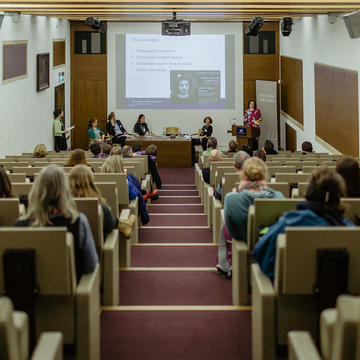
Bodleian Libraries
Potential venues for talks (capacities): Weston Library Lecture Theatre (117 seated) | Other spaces may be available
Further information: Bodleian Libraries venue hire webpage
Example: Centre for the Study of the Book event programme
Further examples: Bodleian Libraries exhibitions and events webpage
Contact: Public Engagement team (publicengagement@bodleian.ox.ac.uk)
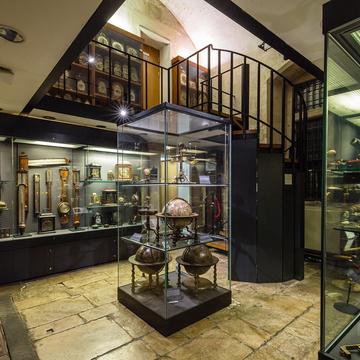
History of Science Museum
tbc
Further information: History of Science Museum venue hire webpage
Contact: Public Engagement Office (publicengagement@hsm.ox.ac.uk)
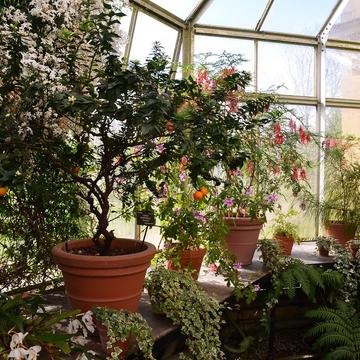
Oxford Botanic Garden & Arboretum
Potential venues for talks (capacities): Daubeny Laboratory can be hired from Magdalen College (50 seated) | Conservatory (30-35 people for a talk or lecture) | Other spaces may be available
Further information: Oxford Botanic Garden venue hire webpage
Example: Celebrating Botanic Gardens: Past, Present and Future | Winter lecture series
Further examples: Oxford Botanic Garden what’s on webpage
Contact: Events team (events@obg.ox.ac.uk)
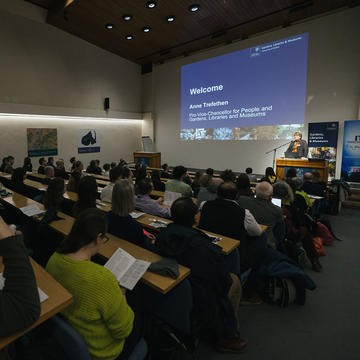
Oxford University Museum of Natural History
Potential venues for talks (capacities): Lecture Theatre (300 seated) | Annexe (50 seated) | Seminar Room (40 seated) | Other spaces may be available
Further information: Museum of Natural History venue hire webpage
Example: How to save the Earth in Four Steps with Henry Grub
Further examples: Museum of Natural History events webpage
Contact: Education team (education@oum.ox.ac.uk)
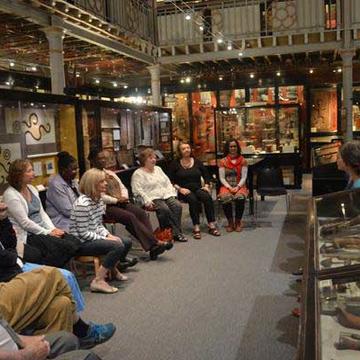
Pitt Rivers Museum
Potential venues for talks (capacities): Lecture Room (60 seated) | Balfour Room (50 seated) | Beatrice Blackwood Seminar Room (25 seated) | Clore Balcony/Museum Lower Gallery (20 seated) | Other spaces may be available
Further information: Pitt Rivers Museum venue hire webpage
Example: Museums and Decolonisation: Stories from the Pitt Rivers Museum
Further examples: Pitt Rivers Museum events webpage
Contact the museum for more information (prm@prm.ox.ac.uk)




